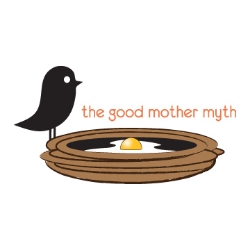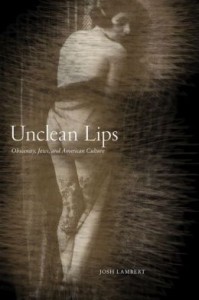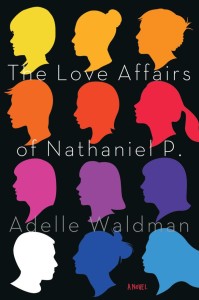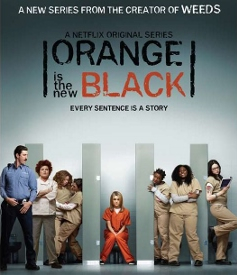Author Archives: Sarah M. Seltzer
November 30, 2017 by Sarah M. Seltzer
Can We Harness the Power of #MeToo To Smash Patriarchy At Its Core?
 Every time I log on to Twitter, I see new male names pop on that left-hand “trending” column and I cringe. Sometimes the newest harassment scandal comes and goes so fast I miss an entire news-cycle—for instance, I was watching the American Music Awards and Ryan Seacrest came on screen: “Accused of sexual harassment,” said my viewing companion. What? Him too? It keeps feeling like the deluge of stories is going to stop—it has to stop at some point, right?—yet it keeps…not stopping.
Every time I log on to Twitter, I see new male names pop on that left-hand “trending” column and I cringe. Sometimes the newest harassment scandal comes and goes so fast I miss an entire news-cycle—for instance, I was watching the American Music Awards and Ryan Seacrest came on screen: “Accused of sexual harassment,” said my viewing companion. What? Him too? It keeps feeling like the deluge of stories is going to stop—it has to stop at some point, right?—yet it keeps…not stopping.
In fact, several weeks in, this moment (or movement?) still feels like it’s snowballing, because anyone who is privy to conversations among women knows that for every name that floats to the surface, there are at least a handful that haven’t been exposed, at least not yet.
And still, the questions can’t be avoided: How long do we have until our time to flood the airwaves with our truth is deemed “up”? What is our window to make a difference? And…what is actually going to change?
- 2 Comments
November 21, 2017 by Sarah M. Seltzer
“Humorless Prig”? “Game Girl”? No One Escapes Toxic Misogyny
Leon Wieseltier didn’t harass all the women he worked with. For him, wrote Michelle Cottle in her bombshell Atlantic piece about the fabled editor: “Women fell on a spectrum ranging from Humorless Prig to Game Girl, based on how much of his sexual banter, innuendo, and advances she would put up with.”
There’s nowhere on that spectrum that’s a comfortable place to be.
Like many have this month, I found myself on an email thread with a group of women discussing our respective experiences with a known harasser in our circle. During the course of our chat, we asked a question many women have been asking: why some of us and not others? How do some people get lucky, and others get victimized?
Because when you read about widespread abuses that seem to hit every industry, every workplace, every woman, you can’t help but wonder: Why me, then? Why not me, the other time? While some misguided voices chimed in early on in this discussion to discuss women’s own behavior as a factor in this fight, we know from too many anecdotes that modesty is hardly a preventative shield, nor is age—nor even perceived beauty.
So what is it? In this particular case, it comes down to power and luck, as it almost always does: women in long-term partnerships, with notable networks of personal and professional support, had been largely left alone by this guy—while women directly reliant on him were targeted. And yet here we all were on the email thread, in solidarity with each other, in shared anger.
- No Comments
May 11, 2017 by Sarah M. Seltzer
On the Importance of Being Women of the Books
 Every day we get further into this madness that is the Trump Administration, the pile of books on my windowsill grows. Never mind that I have no room in my apartment for them, that I had switched to an e-reader several years ago in an effort to keep my shelves from overflowing. All that decluttering effort is officially over. Now I am collecting them like talismans: essays, writers on writing, novels and more novels. As a harried working mom, I have almost no time to read except my commute, but I am slowly making my way through the pile, even as I add to it.
Every day we get further into this madness that is the Trump Administration, the pile of books on my windowsill grows. Never mind that I have no room in my apartment for them, that I had switched to an e-reader several years ago in an effort to keep my shelves from overflowing. All that decluttering effort is officially over. Now I am collecting them like talismans: essays, writers on writing, novels and more novels. As a harried working mom, I have almost no time to read except my commute, but I am slowly making my way through the pile, even as I add to it.
If the apocalypse comes, which it looks like it might, I will be buried in a pile of new releases.
Unlike newspaper articles, tweets, and cable news which agitate us with a certain kind of harsh everyday truth, books allow us to see darkness, but through a softer lens of imaginary experience.
- 1 Comment
November 12, 2014 by Sarah M. Seltzer
Street Harassment, Seat Harassment and Women’s Bodies
 Let’s conduct a thought experiment. A far right wing Christian preacher claims a direct revelation from God, and it goes something like this: Jews are the chosen people. So chosen, so holy, the group from whose midst Christ emerged, that they cannot be touched.
Let’s conduct a thought experiment. A far right wing Christian preacher claims a direct revelation from God, and it goes something like this: Jews are the chosen people. So chosen, so holy, the group from whose midst Christ emerged, that they cannot be touched.
Literally.
So, says the preacher to his congregation, if you find yourself next to a Jew on a train or an airplane, you should ask to change seats immediately. Get up, stand in the aisle, change seats. Ask nicely, of course! Really, it’s not discrimination, they assure the rest of us. It’s personal religious practice. And Jews, if you get this request from a sect member, just try to be cool about it, okay? Let’s not reinforce the reputation that we Jews are pushy and difficult and always angry about anti-Semitism. It’s not an insult from these folks, it’s an honor.
I doubt my fellow Jews would heed calls to “tolerate” this treatment, and the embedded insults, in the name of religious freedom?
- 3 Comments
August 28, 2014 by Sarah M. Seltzer
Is There Any Take-Away from This Long, Anguished Summer of Bad News

https://www.flickr.com/english106/
I wonder if I’ll talk to my children about the summer of 2014 the way my parents now speak to me of 1968. I wonder, too, if the stories I will relate will be even worse. A world on fire, I’ll tell them. Simmering oppression and fear rising to the surface, often with violence, from the first bright mornings of June through the dog days of August. And even those of us who were insulated personally from tragedy by miles or oceans or other, unseen borders, felt exposed: we sat beside our various screens, watching bloody images and words of hatred stream by until our fists clenched, reflexively. And then when we returned to our own lives with their petty disappointments and worries, those small shadows had larger shadows across them.
The disappointment and fear began with the Supreme Court decisions this June. Hobby Lobby, a Christian-run corporation, was bestowed permission to discriminate against its employees, putting religious liberty and reproductive health at risk. How could this happen today, we asked, after decades of the sexual revolution? But of course it had been happening, slowly for years, as corporations became legally ascendant and reproductive rights backslid. We read Anton Scalia’s decision, which singled out women’s healthcare, with mouths agape, and heeded Justice Ginsburg’s prophetic warning that this was opening the door for more discrimination.
In July our newsfeeds exploded with war in Gaza and rockets over Israel, with social media sending us gruesome images of death, destruction and terror. Online and at dinner tables we viciously argued with our own relatives about rights and wrongs abroad, and about where our Jewishness compelled us to stand. “The rhetorical war accompanying the military war – which has drastically increased interpersonal hostilities and decreased my number of friends – is so very unsettling. I feel like we’re doing this all wrong,” wrote Elana Sztokman on this blog. These wars both continued until this week, limping towards a ceasefire with more dead along the way.
- No Comments
March 18, 2014 by Sarah M. Seltzer
Busting Open the Good Mother Myth
 The good mother. She bakes her own challah and breastfeeds, is impeccably groomed while holding down a career or volunteer job, nurtures her family 24-7–and in today’s world, she is also spiritually attuned and a strong, independent woman.
The good mother. She bakes her own challah and breastfeeds, is impeccably groomed while holding down a career or volunteer job, nurtures her family 24-7–and in today’s world, she is also spiritually attuned and a strong, independent woman.
Of course, she doesn’t exist. Avital Norman Nathman, a writer and mom living in Massachusetts’ Pioneer Valley, has edited a collection of essays tackling this new spin on an old myth from many perspectives, introducing readers to a passel of moms who do not fit the mommy mold, and are confronting their own Good Mother Myth myth by writing their truth. Whether they struggle with mental illness, gender roles, or community expectations, the dozens of voices collected in “The Good Mother Myth” create a mosaic that is so much richer and interesting than any perfect mom could be. Nathman spoke with Lilith on one of this winter’s many snow days about media myths, policy changes, and hearing from a panoply of moms.
Sarah Seltzer: Tell me about the genesis for this collection.
Avital Norman Nathman: I’ve been writing about parenting and motherhood for a while now, in addition to my other areas of interest. And being immersed in that topic, I was hyper-aware of how the mainstream media framed their stories and discussion surrounding motherhood. Motherhood would either been seen as this sanitized ideal that we’d all supposedly aspire to or various stories would be co-opted and used as cautionary tales. i.e. “You don’t want to end up as this BAD MOM,” working the fear and judgment.
SS: So why did you decided to do it as anthology of multiple voices instead of just yours!
ANN: It all kind of came to a head for me when Time Magazine came out with their now infamous “Are you MOM ENOUGH?” cover featuring the mother nursing her toddler (while he stood up on a chair. Yay shock value!). It felt superficial, especially when there are so many legitimate and pressing issues facing mothers and families. But those aren’t controversial or sexy enough to merit the big headlines, I guess.
So, I started thinking about a book where I would write about motherhood, not necessarily without a filter, but without intentional framing. Allow stories that just “were” so to speak. The more I started thinking about it, the more I realized that if I used only my voice, I wasn’t doing much to change the current dynamic. Hence the idea to make it an anthology.
- No Comments
January 30, 2014 by Sarah M. Seltzer
Obscenity and the Feminist Case for Free Speech
 In his new book Unclean Lips (find an excerpt in Lilith’s Winter 2013-2104 issue) Josh Lambert, academic director of the Yiddish Book Center, traces the history of Jew and obscenity in America, which which has in the past been treated gingerly because of problematic stereotypes. Yet Lambert writes that in each epoch of free speech and obscenity debates, Jews have been involved for different contextual reasons relating to our status in America and the mores of the time. He talked to Lilith about feminist depictions of prostitutes, Sarah Silverman, birth control and censorship, and modern-day modesty crusaders.
In his new book Unclean Lips (find an excerpt in Lilith’s Winter 2013-2104 issue) Josh Lambert, academic director of the Yiddish Book Center, traces the history of Jew and obscenity in America, which which has in the past been treated gingerly because of problematic stereotypes. Yet Lambert writes that in each epoch of free speech and obscenity debates, Jews have been involved for different contextual reasons relating to our status in America and the mores of the time. He talked to Lilith about feminist depictions of prostitutes, Sarah Silverman, birth control and censorship, and modern-day modesty crusaders.
Sarah Seltzer: Where did your interest in obscenity in a Jewish context came from? Was there one writer or artist who provided the doorway to the topic?
Josh Lambert: Basically it was reading Philip Roth, and finding myself compelled by his twin obsessions with Jewishness and obscenity. Then, my grad advisor asked me to read Adele Wiseman’s Crackpot, an amazing novel that not nearly enough people have read or discussed. And I felt like I had another side of the story.
SS: Crackpot! You write that it posits its prostitute protagonist, and her decision to allow her son to sleep with her unknowingly, as a feminist alternative to the Portnoy’s Complaint narrative. Do you think that the novel’s feminism mixed with its taboo subject is why it has faded while Portnoy and its ilk flourished?
- No Comments
November 6, 2013 by Sarah M. Seltzer
What would Nate make of me now?
 “You are going to love The Love Affairs of Nathaniel P,” a friend told me this summer. “You’ll recognize every. single. character.” There’s nothing I enjoy more than a nice gossipy book that describes a milieu I’m familiar with, so I downloaded the novel that night. In its pages, debut novelist Adelle Waldman takes an uncomfortably close magnifying glass to a group of Harvard-educated, Brooklyn-dwelling literati and journalists. Wait, my inner voice cried out, as the narrative laid these characters’ petty foibles bare, this isn’t me. I mean, I may have been educated at that fabled university, but now I live in far away Harlem and besides, most of my crowd are progressive journalists, not mainstream journalists (meanwhile, I’m still trying to break into the literati). But whom was I kidding? This is 100% a novel about my universe, and I did indeed recognize its cast quite intimately.
“You are going to love The Love Affairs of Nathaniel P,” a friend told me this summer. “You’ll recognize every. single. character.” There’s nothing I enjoy more than a nice gossipy book that describes a milieu I’m familiar with, so I downloaded the novel that night. In its pages, debut novelist Adelle Waldman takes an uncomfortably close magnifying glass to a group of Harvard-educated, Brooklyn-dwelling literati and journalists. Wait, my inner voice cried out, as the narrative laid these characters’ petty foibles bare, this isn’t me. I mean, I may have been educated at that fabled university, but now I live in far away Harlem and besides, most of my crowd are progressive journalists, not mainstream journalists (meanwhile, I’m still trying to break into the literati). But whom was I kidding? This is 100% a novel about my universe, and I did indeed recognize its cast quite intimately.
As Elissa Goldstein did, I thought Waldman was masterful in particular at dissecting of Nathaniel’s psyche. This reminded me of George Eliot and Edith Wharton’s shared knack for profound portrayals of shallow characters (I immediately think of Gwendolyn Harleth in Daniel Deronda) who glimpse of something finer in themselves but can’t access it. Doing something well that George Eliot did well–that’s no small feat on Waldman’s part.
Beyond that, she’s also nailed something in our culture, or at least a privileged heterosexual segment of it. Nathaniel is smart, hyper-observant, and has the right political views. But ultimately, as Goldstein writes, “He says he wants a smart, feminist woman, which is not untrue, but what he really wants is a sexy, conventionally pretty one.” This is maddeningly familiar. I always think back to a snowy evening in a courtyard in college, when a male friend of mine looked at me beseechingly and said, “Sarah, can you explain this whole feminism thing to me? I want to be down with it, but I find it perplexing.” At that point I did exactly what one of the female characters in “Nathaniel B” would do. I said something vague with a half-laugh, hoping to avoid a discussion that would cause me to lose the male approval I still craved despite said feminism.
- No Comments
August 29, 2013 by Sarah M. Seltzer
Orange is Our New Obsession
 Summer 2013: the season that those of us blessed with Netflix accounts compulsively binge-watched the women’s prison dramedy, “Orange is the New Black.” The series follows a WASPy Smithie named Piper Chapman (the fictional avatar of memoirist Piper Kerman) during her year in the Fed for a youthful indiscretion: acting as a drug mule for her ex-girlfriend. In each episode, viewers not only encounter the sexually flexible love triangles, beefs, and tribulations of the inmates, but also heartbreaking flashbacks that show how they ended up behind bars.
Summer 2013: the season that those of us blessed with Netflix accounts compulsively binge-watched the women’s prison dramedy, “Orange is the New Black.” The series follows a WASPy Smithie named Piper Chapman (the fictional avatar of memoirist Piper Kerman) during her year in the Fed for a youthful indiscretion: acting as a drug mule for her ex-girlfriend. In each episode, viewers not only encounter the sexually flexible love triangles, beefs, and tribulations of the inmates, but also heartbreaking flashbacks that show how they ended up behind bars.
My experience as a viewer was typically intense. I suffered acute insomnia from hours of overstimulation as my husband and I raced towards the final episode. I lay in bed pondering the characters’ fates (“They’re not real!” I reminded myself). I openly sobbed on my couch as the plotlines deepened, exploding the broader caricatures we had initially seen. One supposedly brash inmate, Taystee, returns to prison after struggling on the outside; another stoic inmate, Ms. Claudette, who had finally learned to hope for release, loses that hope. And the kicker: the unstable but observant Suzanne, who’s called “Crazy Eyes” by the other inmates, poignantly asks Piper to explain why they call her that–indicting the audience for laughing at her in earlier episodes.
After I finished watching the show, my obsessing continued. I followed the debate about the show’s accuracy, its race and gender politics, including its groundbreaking transgender character, Sophia, played by Laverne Cox, a transgender actress. Is it okay to use a morally ambiguous white protagonist as a “Trojan Horse” to illuminate the lives of women of color–as the show’s creator Jenji Kohan asserted she did on NPR’s Fresh Air? (Kohan, who’s Jewish, also noted in the interview, with some glee, that Piper Chapman is a “WASPy, cold shiksa.)
And as Roxane Gay asks, is the show’s glowing reception really earned, or are we so starved for decent content about diverse women, that any such show with reasonable smarts seems more revelatory than it actually is (I call this the “Juno Effect”)?
- No Comments
July 23, 2013 by Sarah M. Seltzer
Our Princesses, Ourselves?
Thoughts on Jappiness
The first time I ever heard the term “JAP” was at a spartan, secular camp in Maine that, like many of its kind, had a fair share of Jewish campers. My cabinmates and I were lodging a complaint about three older campers who came from a notably Jewish Northeastern suburb. Our tormentors had braces, and their features sat awkwardly on their faces in the way all features do in adolescence. They were like us, yet they were not, because they had chutzpah enough in bikini tops to crown themselves queens of the camp social scene. They turned the announcements, the open mics, the DJing, the talent shows into a staging ground for their own inside jokes. “Those girls can be really jappy,” the director receiving the complaints told us sympathetically. He was a member of the tribe, yes, but I had been convinced he was going to say snobby or cliquey or mean, not, you know, Jewish.
Then, less than six months later, I started seventh grade at a prep school in New York City, and I got it. JAP wasn’t just about ethnicity—it described an entire modus operandi. We used “JAP” in the halls of Horace Mann to criticize the popular girls and issue warnings about creeping conformity. “You’re wearing that? I never thought you’d be such a JAP.” JAP indicated in its broad sweep the ostentatiously wealthy—and also all those who were self-assured enough to run with them, or ride with them in their BMWs as the case often was. When we made use of the shorthand, it targeted the handful of non-Jews, including black girls, Indian girls, and WASPs, who hung out with impunity in the ranks of the “Jappy group.”
I probably uttered the word “Jap” five times a day for six years, only misunderstood when I ventured out of New York City and people assumed I was being viciously racist towards Japanese people. No, I explained, being provincial in the guise of sophisticated: Jewish American Princesses. You know what I’m talking about? Like: Kate Spade, nose jobs, drivers. JAPs.
- 4 Comments
 Please wait...
Please wait...
